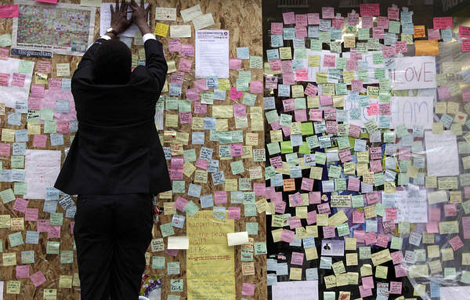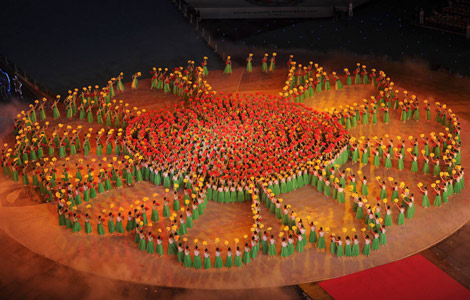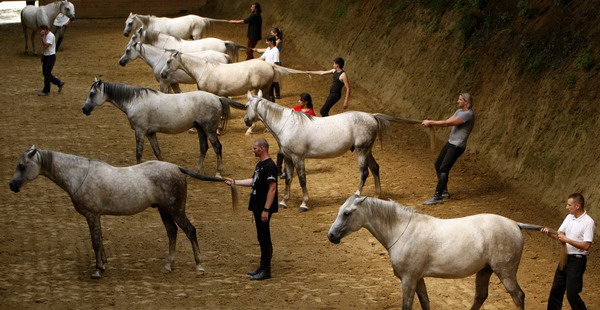Riots shake British society
Updated: 2011-08-13 10:09
(Xinhua)
|
|||||||||||
DEEPER CAUSES
But one may still find the riots mirroring deeper problems within the British society.
Many argued that the polarization between the rich and poor helped breed this week's violence.
Britain saw only a slow and weak recovery in recent years from the financial crisis, as wages are being outstripped by inflation, and living standards suffering a marked decline especially among the poor. The coming years look even harder, and young people saw only elusive job opportunities.
In the meantime, public faith in the police force has been severely dented by the intimate connections between the police and the now-closed tabloid News International, after it was alleged that large sums of money were routinely paid for tip-offs.
All these have come against the background of the country's failure to handle the financial crisis. Many have voiced their anger towards bankers who are perceived to have played a part in the crisis yet are still happy to reward themselves with bonuses worth billions of pounds.
With the cynicism towards legal and governmental institutions, and a feeling that greed and appalling behavior in private institutions like newspapers and banks are going unpunished, it is perhaps less surprising that rioters felt they could go on to the streets and loot shops for whatever they wanted.
DIGITAL RIOTS
The 21st century riots saw the first widespread use of digital communication technology to organize and steer riots.
Messages were posted online on social media sites like Twitter and Facebook calling for riots at specific times and places. Rioters were then moved around, communicating with each other through the Blackberry mobile phone messaging system.
It was similar to the use of social media in unrests in some of the northern African and Mideast countries, which toppled governments in Tunisia and Egypt toppled.
Authorities in Britain had never faced such widespread use of modern technology in the riot's organization, and were outwitted by the rioters to begin with.
WHAT HAPPENS NEXT
Cameron pledged earlier that rioters and looters would be hunted down and punished. His anger and tough talking have gone down well with the public. Many responded by organizing their own mass clean-ups also through Twitter and Facebook.
The police have reasserted their authority, and found political backing for a harder line including the use of water cannons, rubber bullets and even the army if needed.
The courts have responded very quickly and handed down jail terms which they hope will deter future offenders.
But there is still a real danger that further rioting could break out. The deaths of three muslim men in Birmingham, who were run down by a car driven at them as they protected their community on the streets, could yet see a racial backlash.
According to Cameron, "the society is not just broken, some parts of it are sick", and people will be looking to him and his government to fix it, even though they did not cause it.
Whether this is something that can be fixed by a government remains to be seen.
Hot Topics
The European Central Bank (ECB) held a conference call late on Sunday ahead of the market opening, pledging the ECB will step in to buy eurozone bonds with efforts to forestall the euro zone's debt crisis from spreading.
Editor's Picks
|

|

|

|

|

|







